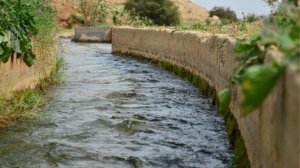Unequal Access to Water in the OPT: Al-Haq’s Ten-Day Focus on Palestinian Water Rights
Latest Topics
24، Apr 2024
Urgent Alert: Israel Marks 200 Days of Genocide with Plans to Destroy Rafah
22، Apr 2024
In court tomorrow: Government seeks to delay court case over UK arms exports to Israel until December
17، Apr 2024
Palestinian Human Rights Organisations on Israel’s Arbitrary Arrests, Enforced Disappearance, Inhumane Treatment, and Torture of Palestinians
16، Apr 2024
Action Alert: Al-Haq, Al Mezan and PCHR Urge the International Community to Intervene as Israeli Forces and Settler Violence Intensifies Across the West Bank
13، Apr 2024
Legal Position: United Nations Security Council Resolution 2728 Demanding a Ceasefire in Gaza is Legally Binding
13، Apr 2024
Palestinian Human Rights Organizations and ECCHR Sue to Stop German Weapons Exports to Israel
Related Subjects
12، Oct 2019
Over 280 ESCR-Net Members Call for Stronger Treaty to Regulate Corporate Activities
09، Oct 2019
Al-Haq’s Engagement with the UN Committee on Economic, Social and Cultural Rights for Israel’s Fourth Periodic Review
08، Oct 2019
Al-Haq Welcomes Launch of World Health Organization Report on the Right to Health in the Occupied Palestinian Territory



 On the occasion of 2013 World Water Day, Al-Haq is pleased to announce the beginning of a ten-day focus on water resources in the Occupied Palestinian Territory (OPT). Between 22 March and 1 April 2013, Al-Haq will release five fact sheets analysing Israel’s extensive and unlawful appropriation and destruction of Palestinian water resources. The first of these, ‘
On the occasion of 2013 World Water Day, Al-Haq is pleased to announce the beginning of a ten-day focus on water resources in the Occupied Palestinian Territory (OPT). Between 22 March and 1 April 2013, Al-Haq will release five fact sheets analysing Israel’s extensive and unlawful appropriation and destruction of Palestinian water resources. The first of these, ‘